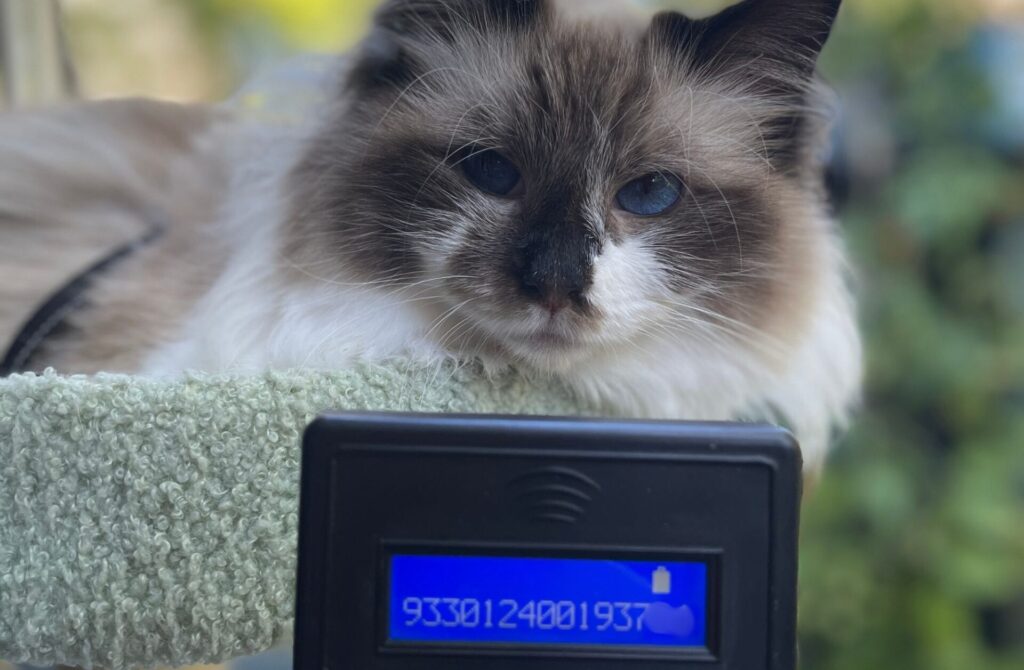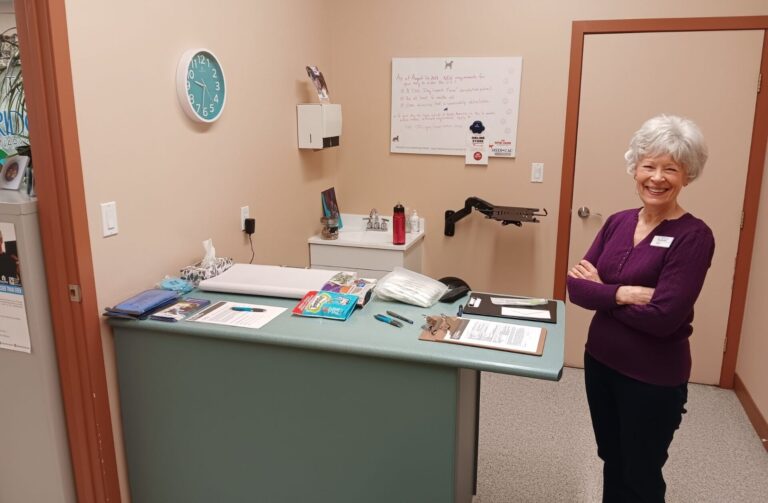Every Day is Tag Day: The Importance of Pet Identification
April 5, 2025, marks Every Day is Tag Day, a reminder for pet owners to check their pet’s identification. Ensuring your pet has a visible AND permanent ID can make all the difference in bringing them home if they get lost. While collar and municipal tags provide quick contact details, permanent IDs like microchips and tattoos offer lifelong security. Let’s explore the different types of pet identification and why each matters.
Collar Tags: The First Line of Defense
Collar tags are the most visible form of pet ID. They should include your pet’s name, your phone number, and your city. This helps a good Samaritan or shelter worker contact you quickly.
Knowing the city the pet is from helps pinpoint the likely area for search efforts. It also informs the finder of which City Hall may have the municipal license information, providing another channel to locate the pet owner.
However, collar tags can fall off, become illegible, or be removed, making them unreliable as the sole form of identification. Often, lost pets are found without any visible IDs.

Municipal Tags: Keeping Records Up to Date
Many cities require pets to have municipal tags. These tags are linked to your pet’s city hall records, which are updated annually during renewal. If your pet is found, a municipal office or shelter can use the tag number to locate you. Still, like collar tags, these can fall off or get lost. Learn more about cat licenses and dog licenses in British Columbia.
Permanent Identification: A Lifelong Safety Net
Unlike tags, permanent IDs remain with your pet for life.
- Tattoos: Applied inside the ear, tattoos are linked to a vet clinic or registry. However, tattoos can fade over time, making them hard to read. Read this blog for detailed information on what you should know about tattoos: Pet Owner’s Guide: Pet Tattoo Codes and Registration in British Columbia

- Microchips: A microchip is the most secure and permanent form of ID. It’s placed under your pet’s skin and can be scanned at shelters and vet clinics. But a microchip is only useful if it’s registered and the contact information is updated. Learn more about how it works here: How Microchip Works – BC Pet Registry

Added Technology: Apple AirTag and GPS Devices
While Apple AirTags and GPS trackers can help locate a missing pet, they shouldn’t replace permanent IDs. Many lost pets arrive at shelters without a collar or any external ID—a microchip ensures they can still be identified. A good practice is to pair an AirTag with a microchip for the best chance of recovery. Stay tuned for our upcoming blog on Apple Airtags! Our blog on Airtags can be found here.
Take Action: Secure Your Pet’s ID Today
- If your pet isn’t microchipped, schedule an appointment with your vet.
- Already have a microchip? Check your registration status to ensure your contact details are current.
- Use multiple forms of ID—a collar tag, a municipal license, and a microchip work best together.
Be a Part of the 80% Responsible Owner
Already microchipped? During our recent events, we scanned hundreds of pets, all with microchips implanted. Only to discover that approximately 20% of the pets’ microchips are not linked to any registries in North America. We recommend all pet owners to double check their pet’s registration and directly registering with us. All you need is the microchip number and/or tattoo code to start the online registration process. For a small, one-time fee of $45, your pet will be protected for a lifetime and you will also have contributed to the life-saving work of the BC SPCA.
Stay Tuned for More Microchip Clinics and Scanning Events
Don’t have a microchip? At BC Pet Registry, we know that microchipping is one of the best ways to ensure lost pets are reunited with their families. That’s why we’re hoping to run more microchip clinics and microchip scanning events throughout the year! To stay informed about upcoming opportunities, be sure to follow the BC SPCA’s main Facebook page as well as your local SPCA’s Facebook page. If you’d like to see more of these events in your area, consider reaching out to your local SPCA to express your interest—community demand helps make these events possible! Read about our latest microchip clinic event in Vernon here!

FAQs
1. Why does my pet need more than one form of identification?
Each type of ID has its strengths. Collar and municipal tags provide quick contact info but can fall off. A microchip is permanent but requires scanning. Using multiple forms ensures the best chance of recovery.
2. How do I check if my pet’s microchip is registered?
You can check your registration by logging into your pet registry account or emailing the BC Pet Registry. A vet or shelter can also scan your pet’s microchip to confirm its details.
3. What should I do if my pet’s tattoo has faded?
If your pet’s tattoo is hard to read, finders will not be able to trace the tattoo code to the vet provider who holds your contact information. You may need to consider getting a microchip for your pet to ensure your pet can be traceable to you.
4. Are Apple AirTags or GPS trackers a good alternative to microchips?
No, while AirTags and GPS trackers can help locate a lost pet, they require a collar, which can fall off or be removed, may require battery and signal. A microchip ensures identification even if the pet loses all external ID.
5. How often should I update my pet’s ID information?
You should update your pet’s ID anytime you change your phone number, address, or emergency contact. Consider getting your pet scanned during your regular vet visits to ensure it is easily scannable at all times.

